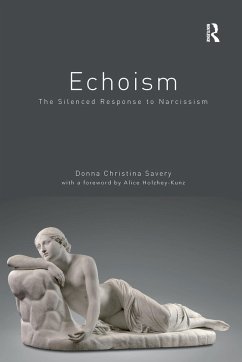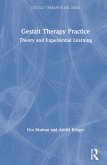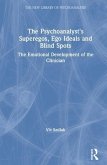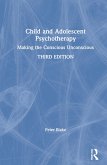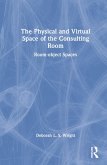This book introduces the importance of Echoism as both a clinical entity and a theoretical concept. In Ovid's version of the myth of Echo and Narcissus, the character Echo receives equal attention to her counterpart, Narcissus, yet she has been completely marginalised in the pervasive psychoanalytic literatures on narcissism.
Hinweis: Dieser Artikel kann nur an eine deutsche Lieferadresse ausgeliefert werden.
Hinweis: Dieser Artikel kann nur an eine deutsche Lieferadresse ausgeliefert werden.
'This book refocuses the Narcissus myth in a compelling way that illuminates and extends our views of narcissism as a personality trait and as a clinical disorder. Donna Christina Savery brings to Ovid's story a theatrical director's eye and a psychologically informed imagination that draws on existential and psychoanalytic writings to explore the complementary female partnership of male narcissism. It splendidly combines literary intuition and a clinical sense of personal development and inter-personal relationships. For anyone with a professional interest in psychodynamic marital work and couple relationships her concept of 'Echoism' is invaluable; for anyone who finds life interesting and art illuminating it is fascinating and stimulating; for those with a psychotherapeutic, clinical, practice it is eye opening.'-Dr. Ronald Britton, Fellow Royal Society of Psychiatrists and Distinguished Fellow British Psychoanalytic Society
'The idea of Echoism, with its potential to tell the other side of such a powerful story (and human dynamic) seems at first so blatantly obvious that I am incredulous that it has been so neglected. This book illuminates a truth about human relationships (therapeutic and otherwise) that has, until now, been hidden in plain sight. Practitioners of all theoretical persuasions should be encouraged to engage with Echo, and all that she has to tell us about ourselves, our clients and our society.'-Dr Susan Iacovou, Chartered Counselling Psychologist and author of Existential Therapy: 100 Key Points
'In her original re-visitation of the Greek myth of Narcissus, psychotherapist Donna Christina Savery offers us here a convincing shift of emphasis to the 'other' dramatis persona, the nymph Echo. Left by most conventional readings, psychoanalytic ones included, in the shadow of the beautiful man she is in love with, Echo finds here her due voice, supported by literary and existential-philosophical considerations, in analytic theory and in its therapeutic applications. Described in detail by Savery, and illustrated by relevant clinical vignettes, the phenomenology of the resulting condition of 'Echoism', whose prominent feature is 'an absence of a self... most apparent in the absence of a voice', deserves our serious consideration.'-Andrea Sabbadini, Fellow of the British Psychoanalytical Society, Director of the European Psychoanalytic Film Festival; author of Moving Images (2014) and Boundaries and Bridges (2014)
'The idea of Echoism, with its potential to tell the other side of such a powerful story (and human dynamic) seems at first so blatantly obvious that I am incredulous that it has been so neglected. This book illuminates a truth about human relationships (therapeutic and otherwise) that has, until now, been hidden in plain sight. Practitioners of all theoretical persuasions should be encouraged to engage with Echo, and all that she has to tell us about ourselves, our clients and our society.'-Dr Susan Iacovou, Chartered Counselling Psychologist and author of Existential Therapy: 100 Key Points
'In her original re-visitation of the Greek myth of Narcissus, psychotherapist Donna Christina Savery offers us here a convincing shift of emphasis to the 'other' dramatis persona, the nymph Echo. Left by most conventional readings, psychoanalytic ones included, in the shadow of the beautiful man she is in love with, Echo finds here her due voice, supported by literary and existential-philosophical considerations, in analytic theory and in its therapeutic applications. Described in detail by Savery, and illustrated by relevant clinical vignettes, the phenomenology of the resulting condition of 'Echoism', whose prominent feature is 'an absence of a self... most apparent in the absence of a voice', deserves our serious consideration.'-Andrea Sabbadini, Fellow of the British Psychoanalytical Society, Director of the European Psychoanalytic Film Festival; author of Moving Images (2014) and Boundaries and Bridges (2014)

